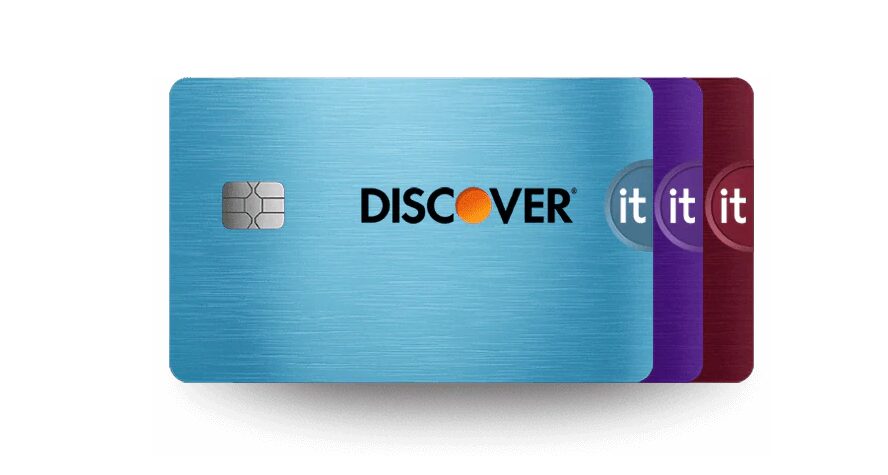How to Improve Your Credit Before Applying for a Personal Loan

Boost Your Financial Confidence
Improving your credit score can feel like a daunting task, but it’s a crucial step toward achieving financial freedom. The journey to a better credit score often requires patience and commitment, but the rewards are significant. Enhancing your credit can open doors to better interest rates and loan terms, making goals like purchasing a home or financing education more attainable. Understanding the importance of maintaining a healthy credit score can change your life for the better.
Before diving into the strategies for improving your credit, consider the benefits that come with a higher score. Here are a few key advantages of improving your credit before applying for a personal loan:
- Lower Interest Rates: A higher credit score allows you to secure reduced interest rates, which can save you thousands of dollars over the life of a loan. For instance, if you’re borrowing $20,000 for a car loan, a difference of just 1% in interest can save you over $1,000 in interest payments!
- Increased Loan Amounts: With better credit, lenders are often more willing to offer larger sums of money. If you’re looking to finance a home renovation or fund your education, a solid credit score can help you get the necessary funds without having to rely on multiple smaller loans.
- More Approval Chances: A solid credit history significantly boosts your likelihood of being approved for loans. Lenders view high credit scores as a sign of responsible financial behavior, increasing your options when it comes to choosing a lender that best fits your needs.
As you embark on this journey, remember that every small step counts. Whether it’s paying down existing debt or making payments on time, each action you take brings you closer to financial stability and confidence. For example, setting aside a budget for repayments can alleviate stress and ensure you’re consistently improving your score.
Practical Strategies to Elevate Your Credit Score
Let’s explore some practical strategies to elevate your credit score, ensuring you’re in the best position possible when you apply for a personal loan. Start by reviewing your credit report for errors. In the United States, you’re entitled to one free credit report every year from each of the three major credit bureaus: Experian, TransUnion, and Equifax. Disputing inaccuracies can dramatically improve your score.
Another effective strategy is to lower your credit utilization ratio — aim to use under 30% of your available credit. This shows lenders that you are managing your credit responsibly. Additionally, setting up automatic payments can help you avoid late payments, which negatively impact your score.
Your financial future starts now! By taking these proactive steps, you will not only improve your credit score, but also build a solid foundation for a brighter financial future. Embrace the journey, and watch your financial confidence soar!
Unlocking Your Financial Potential
Embarking on the journey to improve your credit score doesn’t just enhance your financial health; it empowers you to seize opportunities and navigate your financial landscape with confidence. Understanding the right steps to take can lead to tangible results, transforming a previously challenging financial situation into a promising one.
One of the most vital steps is to check your credit report regularly. This is not just a one-time action but a habit that can provide you with insights into your credit history. Each year, you can obtain one free credit report from the three major credit bureaus—Experian, TransUnion, and Equifax. Scan through these reports for any errors, as they can be detrimental to your score. If you find discrepancies, take action to dispute them. This simple act can give your credit score a significant boost.
Moreover, a good rule of thumb is to keep your credit utilization ratio below 30%. This means that if you have a credit limit of $10,000, you should aim to keep your outstanding balances below $3,000. This figure signals to lenders that you are not overly reliant on credit, showcasing responsible financial behavior. You can achieve a lower utilization by paying down existing balances more quickly or by requesting increases in your credit limits—without a corresponding increase in spending, of course. This proactive approach positions you favorably in the eyes of lenders.
Another crucial element is making timely payments. Establishing a history of on-time payments is one of the most effective ways to enhance your credit score. Late payments can stay on your report for up to seven years, detrimentally impacting your score. Setting up automatic payments, reminders, or even utilizing budgeting apps can help ensure that you never miss a due date. Consistency is key; each timely payment contributes positively to your credit history.
- Maintain a diverse credit mix: Mixing different types of credit, such as a car loan, credit cards, and a mortgage, can reflect positively on your credit score as it shows your ability to manage various financial responsibilities.
- Avoid opening too many accounts at once: While tempting, applying for multiple credit accounts in a short period can signal risk to lenders, potentially lowering your score. Focus on strategic applications when necessary.
- Keep old accounts open: The length of your credit history contributes to your score, so consider keeping older accounts open, even if they’re not used regularly, to help your score appear stable over time.
By committing to these actions, you can transform your financial profile and pave the way for a brighter financial future. Each step you take builds not only your credit score but also your self-assurance in managing your finances. Remember, the journey to a healthier credit score is a marathon, not a sprint, and with dedication, you’ll soon see the rewards of your efforts.
Navigating the Path to Financial Wellness
On your journey to boost your credit score, understanding the underlying factors that influence it can be incredibly empowering. Being proactive about your financial habits is not only smart; it can also significantly influence your eligibility for a personal loan. Here are additional strategies that can take your credit to the next level.
A lesser-known but powerful method to enhance your credit score is to become an authorized user on someone else’s credit card. This approach can be especially effective if you have a family member or close friend with a good credit history. As an authorized user, you can benefit from their positive credit behaviors, such as on-time payments and low credit utilization, which will reflect on your credit report. However, ensure that the account has a history of responsible usage, as any negative behavior from the primary account holder can also affect you adversely.
Utilizing secured credit cards can also be a strategic move. These cards require a cash deposit that serves as your credit limit. Using a secured card responsibly, by making small purchases and paying them off in full each month, can demonstrate your ability to manage credit effectively. Over time, this can help you build or rebuild your credit history, paving the way for better financial opportunities in the future.
Limit New Credit Inquiries
Every time you apply for new credit, a hard inquiry is made on your credit report, which can temporarily reduce your score. Minimizing new credit applications in the months leading up to your personal loan application can help maintain your credit score. Instead of applying for multiple loans at once, take time to assess your needs. Research lenders and financing options to ensure that when you do apply, it’s for a loan that aligns with your financial goals.
Ensure Your Debts Are Manageable
It’s also essential to take a close look at your debt-to-income (DTI) ratio—a critical metric that lenders consider. This ratio assesses your monthly debt payments against your gross income. Aim for a DTI of 35% or lower for favorable consideration from lenders. To achieve this, you might need to restructure your budget, focusing on reducing unnecessary expenses, or increase your income through side gigs or overtime work. A lower DTI not only boosts your creditworthiness but also elevates your confidence when applying for a loan.
- Educate Yourself: Understanding financial jargon and current credit laws can equip you to make more informed decisions. Free resources are available from places like the Consumer Financial Protection Bureau (CFPB) which provides abundant information to empower consumers.
- Engage Regular Financial Check-ups: Just as you would schedule a regular health check-up, consider periodic reviews of your financial situation. Engage with a financial advisor if needed, as they can provide tailored advice that suits your personal circumstances.
Even small adjustments to your financial habits can lead to significant improvements over time. By taking these proactive measures to enhance your creditworthiness, you are not just preparing for the application process; you are also laying the groundwork for a lifetime of better financial management and stability. Every step you take on this path reinforces your financial well-being, inspiring you to take charge of your financial future with assurance and clarity.
Stepping Towards Financial Empowerment
As you stand on the brink of applying for a personal loan, remember that the effort you invest in improving your credit score is an investment in your financial future. Each strategy discussed—from becoming an authorized user to utilizing secured credit cards, and managing your debt-to-income ratio—not only boosts your creditworthiness but also transforms how you engage with your finances. By adopting responsible financial practices, you are setting the stage for successful loan applications and beyond.
Every positive action, no matter how small, contributes to building a strong credit foundation. It’s about more than just numbers; it’s about creating a financial landscape where you can thrive. Periodic financial check-ups and ongoing education about credit management are pivotal in safeguarding your financial health. The knowledge you gain empowers you to make informed decisions, enhancing your confidence when navigating future financial opportunities.
As you move forward, embrace the journey of credit improvement as a stepping stone towards overall financial wellness. Let each effort inspire you to make conscious choices, paving the way for a stable and secure financial life. With determination and patience, you can elevate your credit score, ensuring that when the time comes to apply for that personal loan, you will do so with the strength and assurance that comes from diligent preparation. Take control of your financial destiny—your future self will thank you.
Related posts:
Comparison of digital credit cards in the United States
How to Use Technology to Control Spending and Personal Finances in the USA
The Impact of Personal Loans on Your Long-Term Credit Score
How to Use Personal Loans to Invest in Education and Professional Development
Ideal Low-Risk Investments for Brazilians in the USA
How to Secure a Personal Loan with Wells Fargo: A Comprehensive Guide

Beatriz Johnson is a seasoned financial analyst and writer with a passion for simplifying the complexities of economics and finance. With over a decade of experience in the industry, she specializes in topics like personal finance, investment strategies, and global economic trends. Through her work on Web Dinheiro, Beatriz empowers readers to make informed financial decisions and stay ahead in the ever-changing economic landscape.







